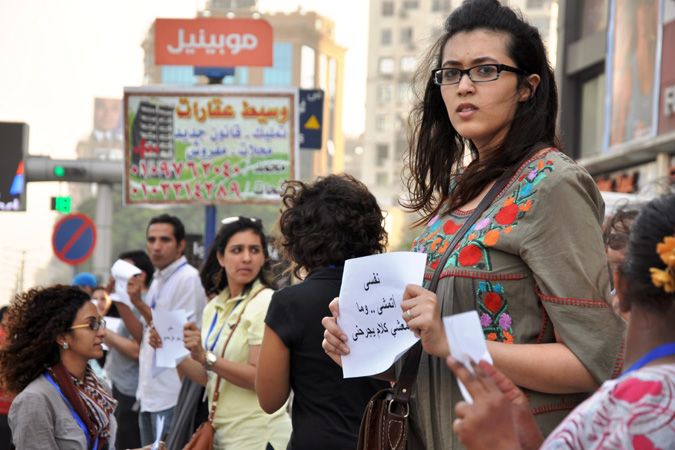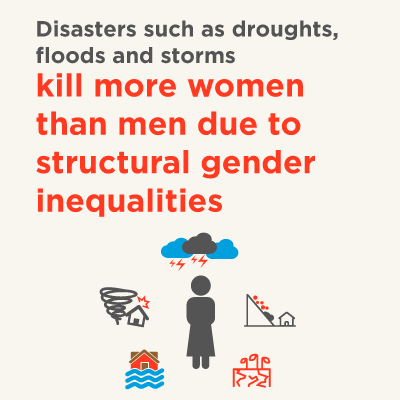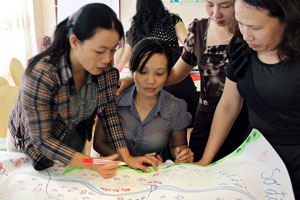SDG 11: Make cities and human settlements inclusive, safe, resilient and sustainable

Targets
- By 2030, provide access to safe, affordable, accessible and sustainable transport systems for all, improving road safety, notably by expanding public transport, with special attention to the needs of those in vulnerable situations, women, children, persons with disabilities and older persons.
- By 2030, provide universal access to safe, inclusive and accessible, green and public spaces, in particular for women and children, older persons and persons with disabilities.
- By 2030, ensure access for all to adequate, safe and affordable housing and basic services and upgrade slums
- By 2030, enhance inclusive and sustainable urbanization and capacity for participatory, integrated and sustainable human settlement planning and management in all countries.
- Strengthen efforts to protect and safeguard the world’s cultural and natural heritage.
- By 2030, significantly reduce the number of deaths and the number of people affected and substantially decrease the direct economic losses relative to global gross domestic product caused by disasters, including water-related disasters, with a focus on protecting the poor and people in vulnerable situations.
- By 2030, reduce the adverse per capita environmental impact of cities, including by paying special attention to air quality and municipal and other waste management.
- Support positive economic, social and environmental links between urban, peri-urban and rural areas by strengthening national and regional development planning.
- By 2020, substantially increase the number of cities and human settlements adopting and implementing integrated policies and plans towards inclusion, resource efficiency, mitigation and adaptation to climate change, resilience to disasters, and develop and implement, in line with the Sendai Framework for Disaster Risk Reduction 2015–2030, holistic disaster risk management at all levels.
- Support least developed countries, including through financial and technical assistance, in building sustainable and resilient buildings utilizing local materials.
The world today is urbanizing at rates unprecedented in history. For many men and women, the chance to move to a city is a chance for a better life—a larger income, more interesting employment, a more comfortable residence and ready access to modern amenities.
Yet cities are also places of deep inequality and despair. New migrants, many of them women, can end up in overbuilt slums, poorly connected to public transport or essential services such as clean water. Life becomes dangerous and unhealthy, with many obstacles to gaining a secure foothold in the urban economy.

For women, gender discrimination magnifies and adds to the risks. Not being able to take a bus to a clinic to deliver a child can result in permanent disability or death. In general, natural disasters kill more women than men and kill women at a younger age than men [1]. If she survives a disaster such as a flood or earthquake, a woman will likely have fewer options to recover.
Cities and human settlements can be safe, prosperous, equitable and pleasant places to live. But not without including every citizen in their development. All elements of urban governance, planning and finance need to actively embed gender equality measures. And women deserve equal roles in making decisions about an ever more urban world.
UN Women’s efforts ensure urban public spaces are safe and that women and girls can enjoy them without being assaulted or harassed. UN Women’s Safe Cities Global Initiative has generated a number of innovative results through partnerships with mayors’ offices, national Governments, women’s groups and other community partners. To reduce the number of women impacted by disasters, the entity also promotes disaster-risk reduction planning and training to help women become more resilient and to mitigate the effects of climate change.
Stories
Lives saved in Viet Nam by involving women in disaster planning
Through the training of women in disaster management, as well as national lobbying, the contribution of women has been recognized and a government decree now gives the Women’s Union an official space in decision-making bodies.
Quito: committed to preventing sexual harassment in public spaces
As one of the five pioneer cities under UN Women’s Safe Cities Global Initiative, Quito is acting to prevent and eradicate all forms of violence against women and girls. Following a scoping study, Quito’s Municipal Council adopted pioneering legislation to prevent violence against women, and included sexual harassment in public spaces in its City Ordinance.
Notes
[1] United Nations Economic and Social Council (2013), Gender equality and the empowerment of women in natural disasters Report of the Secretary-General, p. 2.
